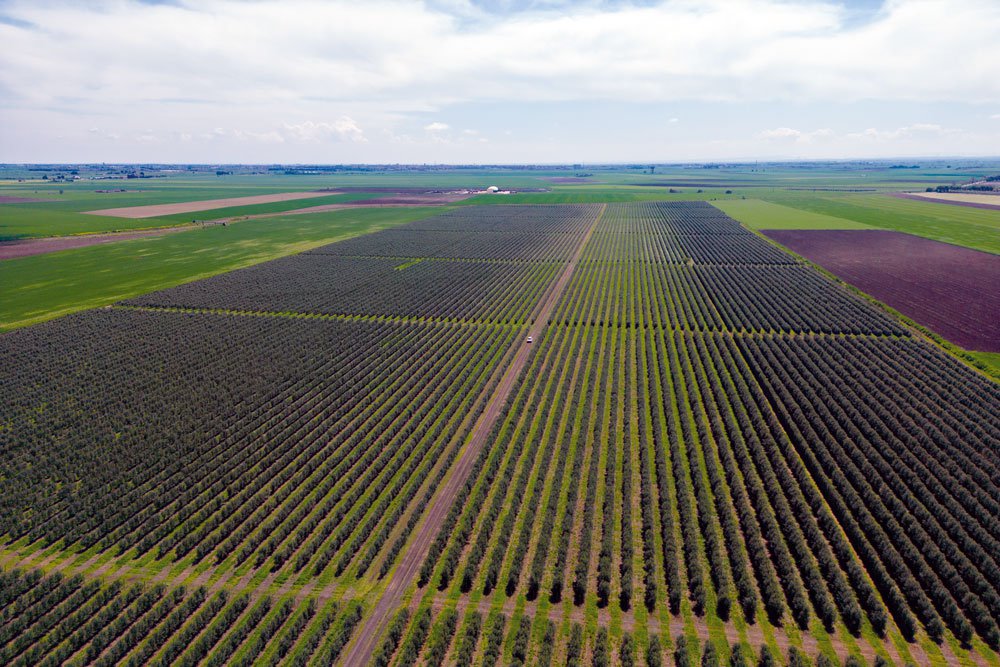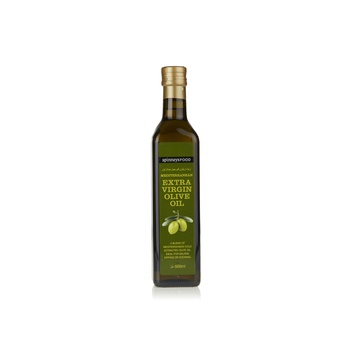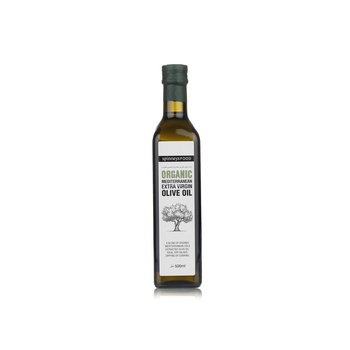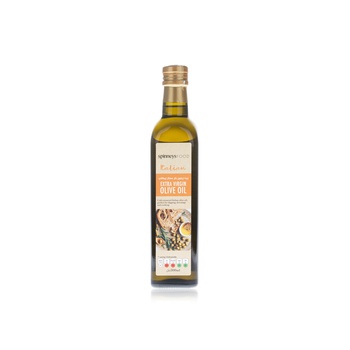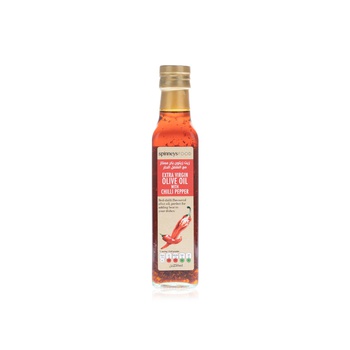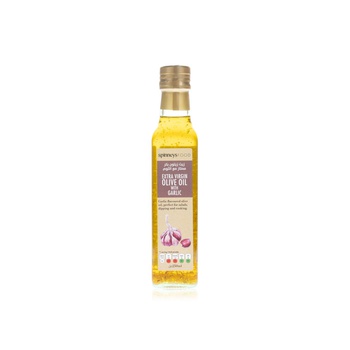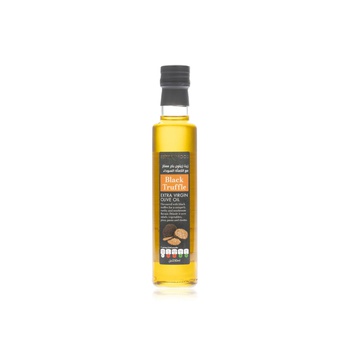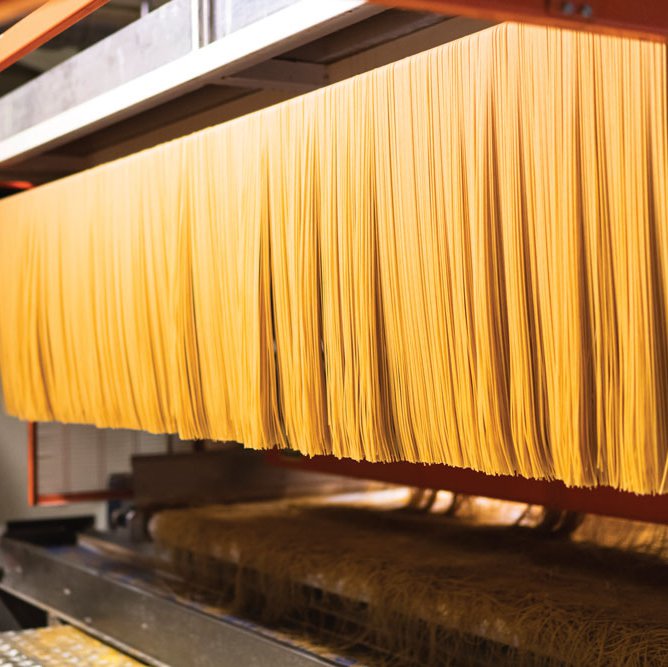Falcons glide high overhead, hunting for mice among the fields of Foggia. Down at ground level, in this area known as ‘the granary of Italy’, the vivid red shell of a ladybird stands out against the deep green leaves of the olive trees. “This is a good sign,” says Federico Basso, whose family owns this farm and several others as part of its almost 120-year-old olive oil company. “Ladybirds are a positive symbol in organic farming.”
“They protect these trees by attacking and eating the other insects that are bad for the plants,” says Federico, “which helps us to avoid using chemicals.” He and his older brother Fabrizio represent the fifth generation of a business begun by their grandfather’s grandfather in 1904, which was a relatively simple and small-scale affair, restricted to delivering olive and vegetable oils around the family’s home turf of Irpinia, in the heart of the Campania region.
The brothers grew up in the trade, pitching in with the workers during their summer holidays, but formally joined the company to handle domestic sales (Fabrizio) and exports (Federico) in 2015 and 2016, respectively. It was their father, Sabino, the current company president who made Basso an international name when he inherited the business in the mid-1980s.
“My own father left me a company that only sold to the local market,” says Sabino. “For me it was important to take us abroad.” Beginning with the US and Canada – two major vectors for Italian immigration, and therefore natural points of sale to the wider diaspora – Basso kept expanding “day by day and year by year, to new customers in England, Australia, Japan, Korea …”. Today the brand is in 90 countries, including the UAE, where Spinneys stocks Basso’s organic Extra Virgin Olive Oil (EVOO), as well as a truffle-infused EVOO and a signature Mediterranean blended oil, sourced from trusted suppliers in Spain and Greece.
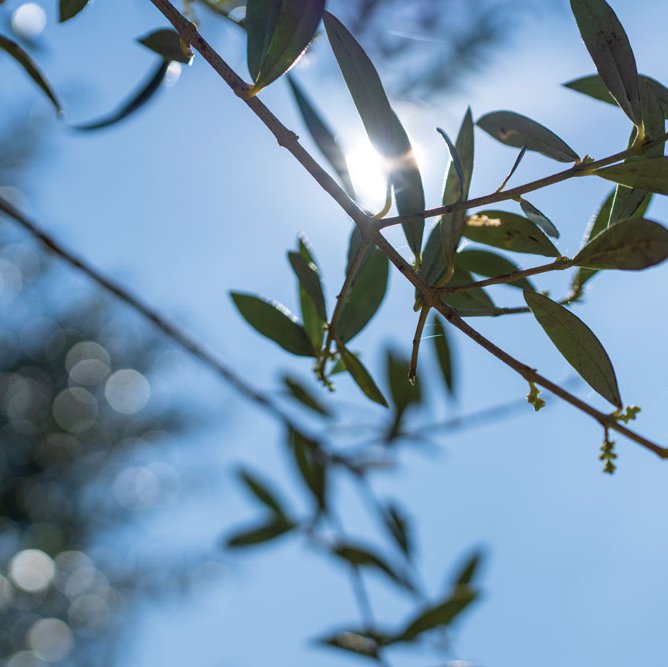
Ladybirds are welcome visitors at the Basso family’s organic olive farms, where they protect the trees from harmful insects
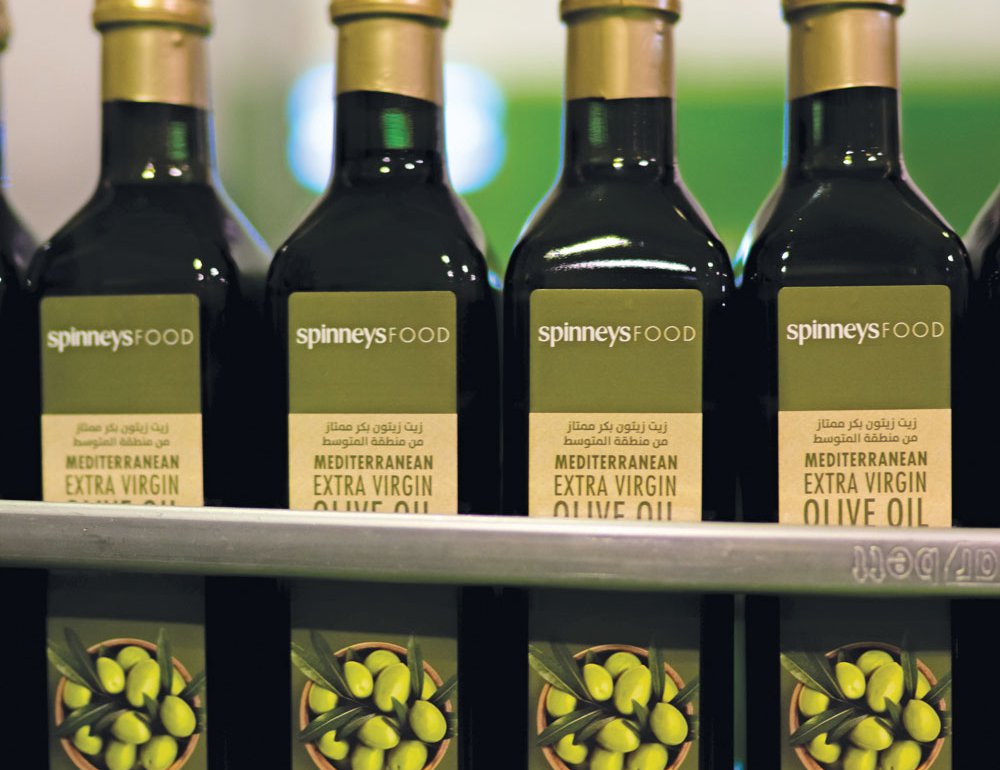
Bottles of SpinneysFOOD Mediterranean Extra Virgin Olive Oil in the assembly line
This geographic spread makes Sabino proud, as do his two sons, “simple, humble men”, whom he has entrusted to take the company into the future and perhaps “double” its current sales. The product itself is absolutely essential, in his view – Sabino eats EVOO with bread for breakfast every morning, sometimes with a spoon of sugar, and does not discount the possibility that it has help sustained his health through a lifetime of marathon running.
His particular region of Italy lends itself to a good quality of life, he says. Besides being famous for wine, olive oil and the gastronomic traditions preserved in the recipe books of resident grandmothers, Irpinia also has “the best biodiversity in the world”, and is now generating a lot of clean energy through wind and solar power.
Basso is very much plugged into that circuit, so to speak. Having been using photovoltaic panels since 2003, the company has since heavily invested in strategies and technologies for more sustainable production. “Most important is water management,” says Federico.
“About 70 per cent of water is wasted in agriculture, so we’re shifting to a system that allows us to control the exact amount of water that each plant gets. We are also reusing waste grass and other materials to enrich the soil with oxidants to help those plants grow stronger.”
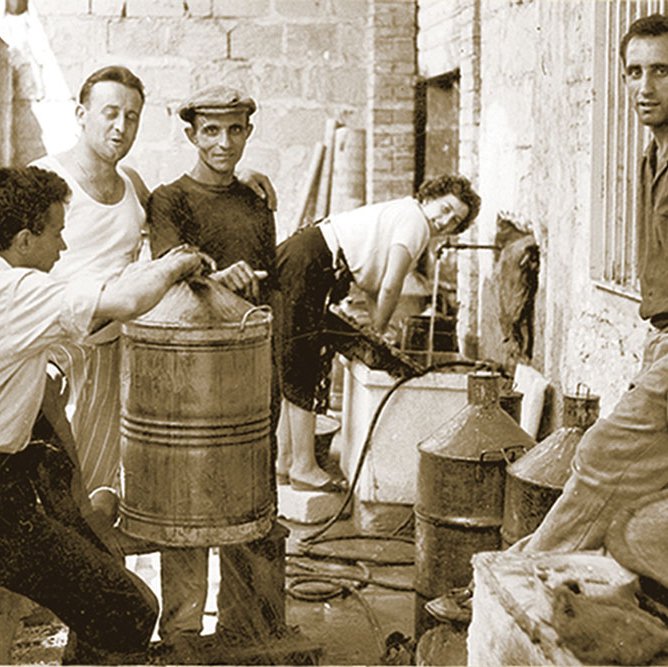
Fedele Basso (second from far left), Sabino Basso’s father
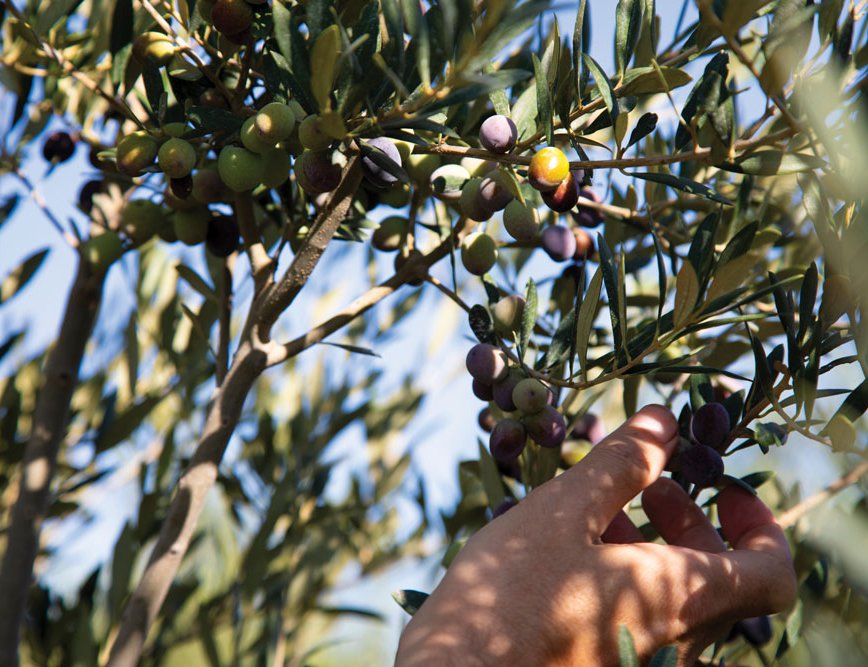
Arbequina olives
Basso’s various olive farms extend to traditional, intensive and super-intensive operations. The latter prevails at this 59-hectare site in Foggia, where the trees are arranged close together, plantation-style, so pruning and harvesting are made easier. Quality-wise, trees grown in this system don’t give excellent olives until they’re about five years old, but the overall yield tends to be higher than with older plants. These particular olives are the Spanish varietal Arbequina, which Basso tends to use in blended oils, “because it’s very sweet with an almond taste quite different from the classic Italian olive”.
“It gives a good balance,” says Federico. “Not too aggressive but not too plain.” This site and others are managed by Vincenzo Fratta, an old university friend of Sabino’s “who shares our values in biological and organic farming”, while production is overseen 20-year Basso veteran Leopoldo De Falco, who talks us through the stringent quality control checks conducted before and after the oil goes into each bottle.
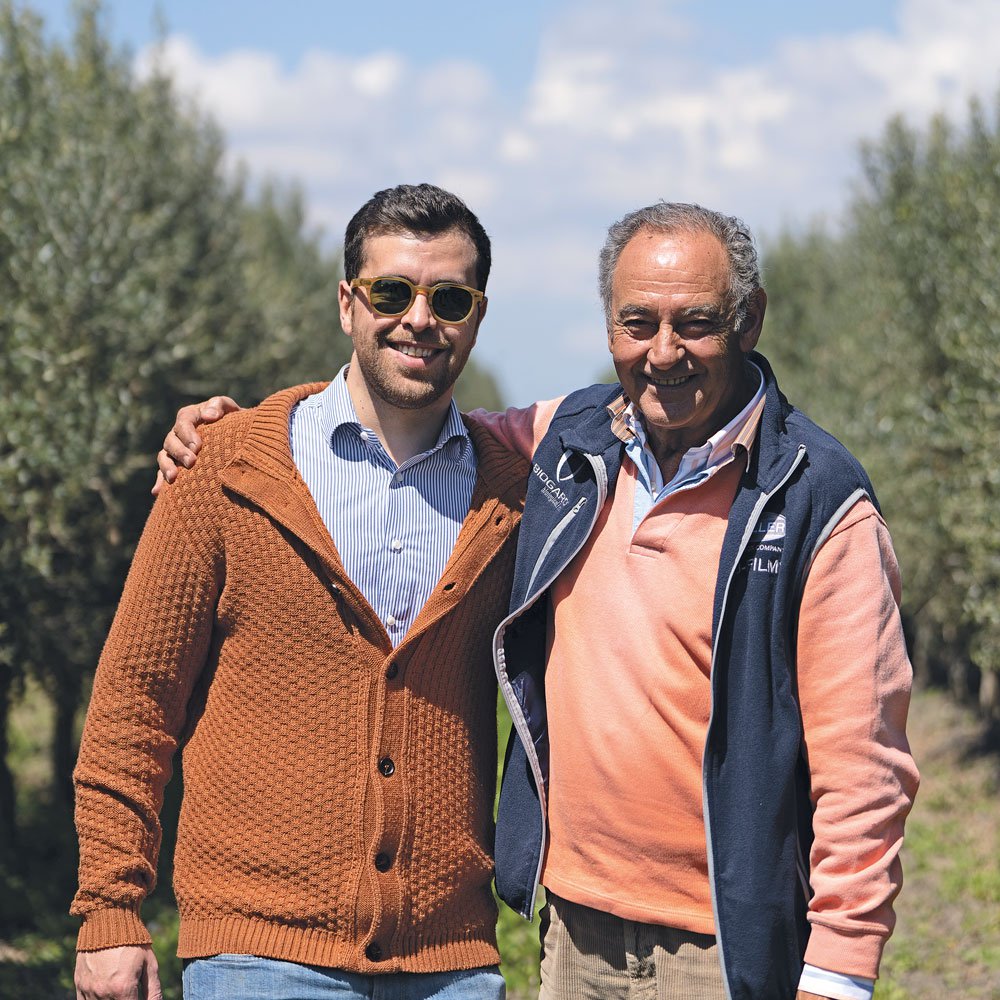
Federico with Vincenzo, who manages several sites for Basso
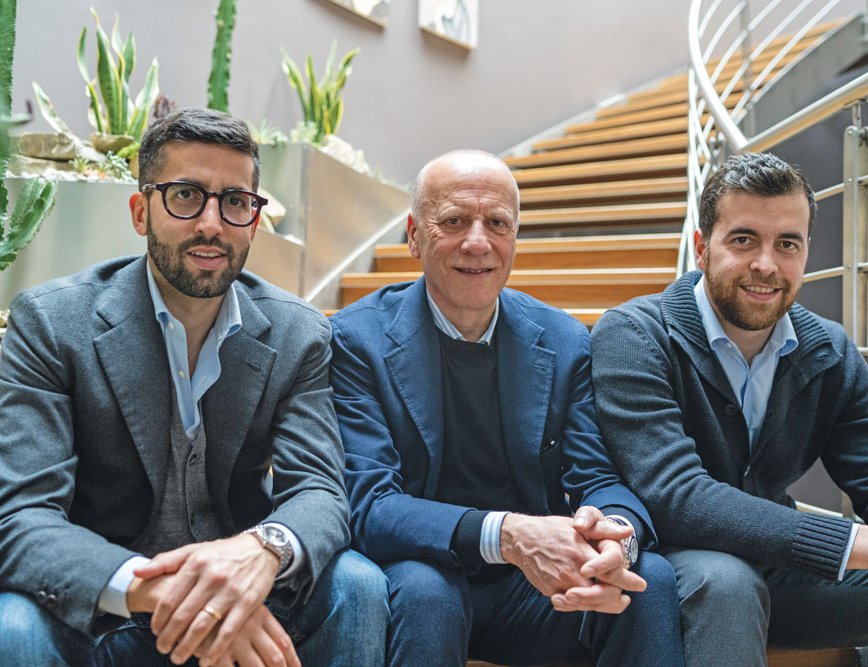
Sabino, the current company president, with his sons Fabrizio and Federico, who handle domestic sales and exports respectively
“We have a very strong quality department, and a chemical lab that is very important for analysis of the product,” says Sabino’s older son and CEO Fabrizio Basso, at the family home and company headquarters in Avellino. From here to the margins of the brand domain – some of its olives are grown as far afield as Tunisia – “all suppliers have to follow our direction, operate within our parameters and meet all our specifications.”
Fabrizio explains that the farming side of the business is a relatively recent development that more or less coincided with he and his brother taking an active role. “It was only a few years ago we started to look at agriculture as a natural link to the industrial part of the process. Clients can visit the olive trees that make our oil – this is a beautiful thing to see.”
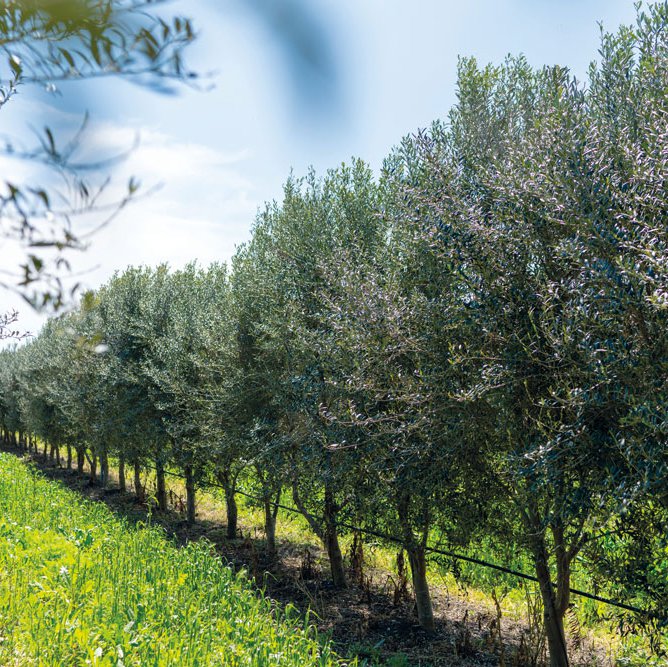
Olive trees are planted close together to make pruning and harvesting easier
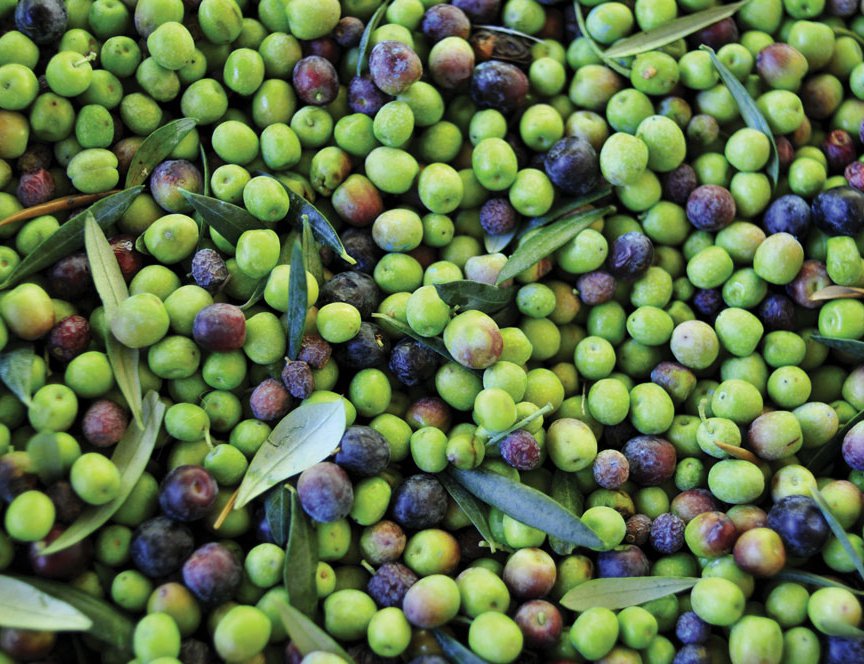
All olive suppliers have to operate within strict parameters set by the company
Surveying the Villa Raiano vineyard, Fabrizio, too, remembers visiting production sites with his father as a kid, and says he never considered doing anything else with his life.
“I never thought of a future away from my family. I studied in Naples, and the UK, and then immediately came back to start helping the company. My brother and I brought in new ideas that were not so easy to share with our father and the older generation, but things are slowly changing now, we’re approaching a new way of doing business, with a wider range of products.” While current market trends tend to embrace all sorts of flavoured oils and infusions, says Fabrizio, the core product remains the Basso standard-bearer.
“We will always push on extra virgin olive oil, and especially our 100% Italian EVOO, which we believe has the best quality in the whole Mediterranean area.”
